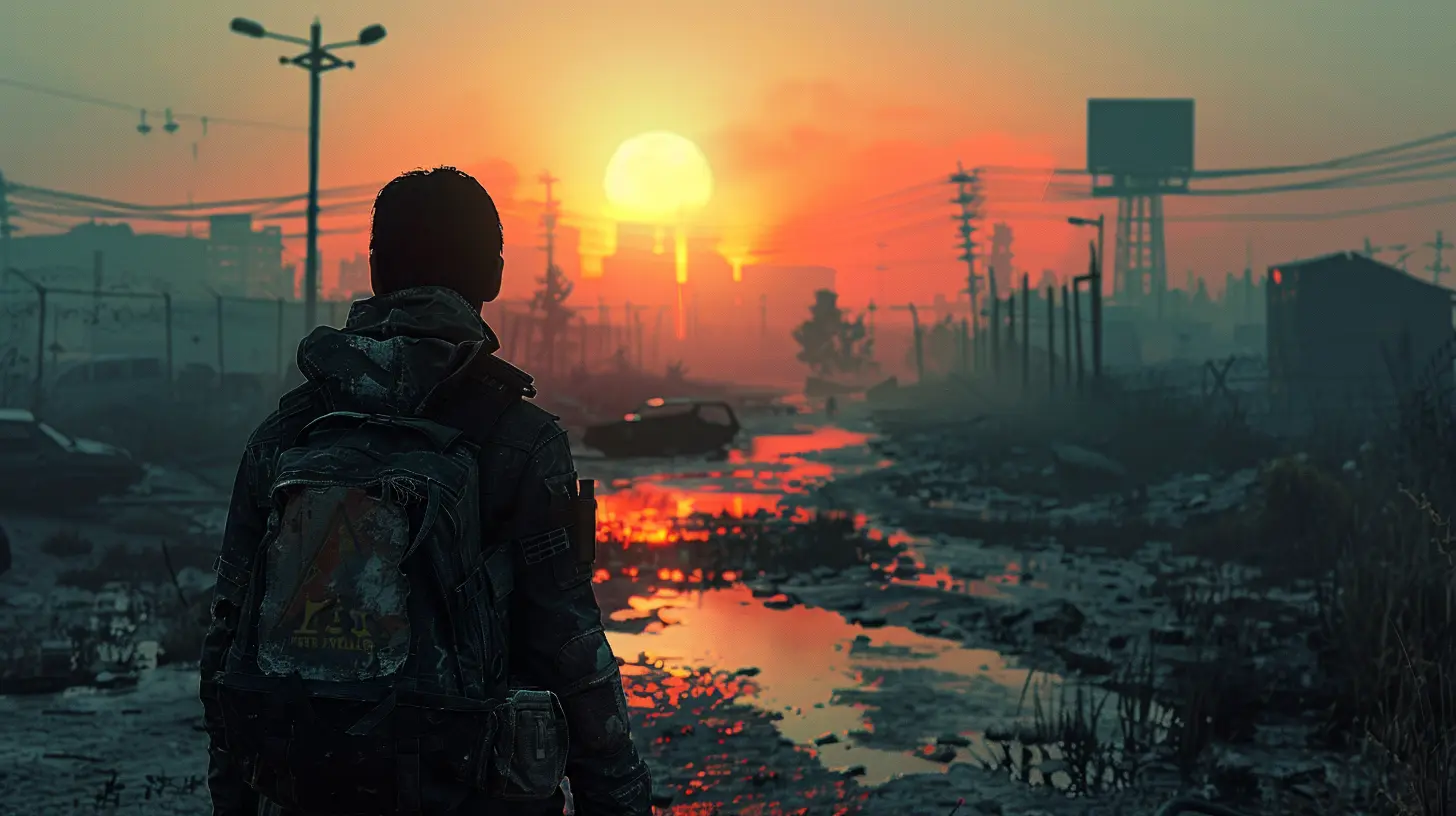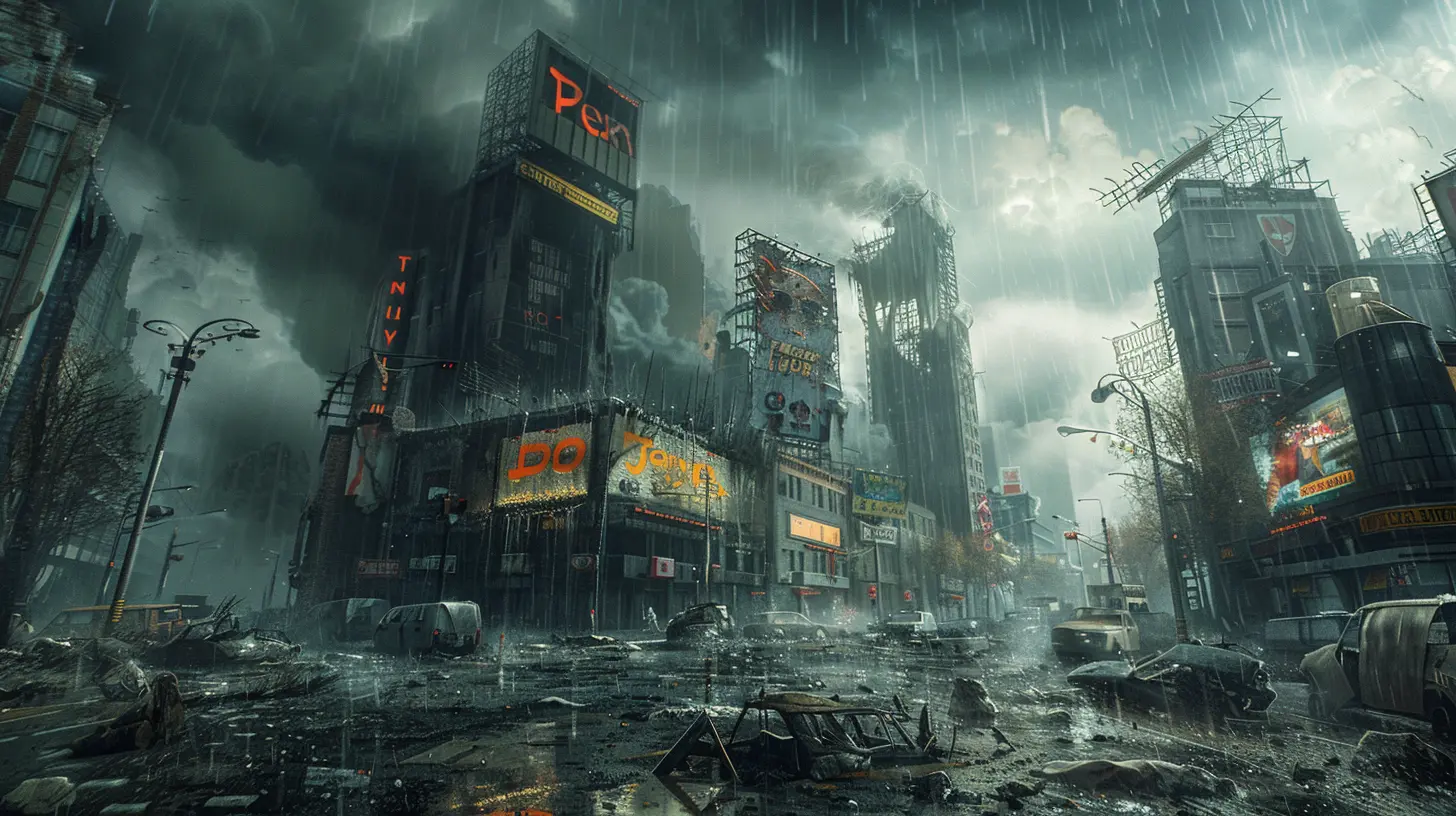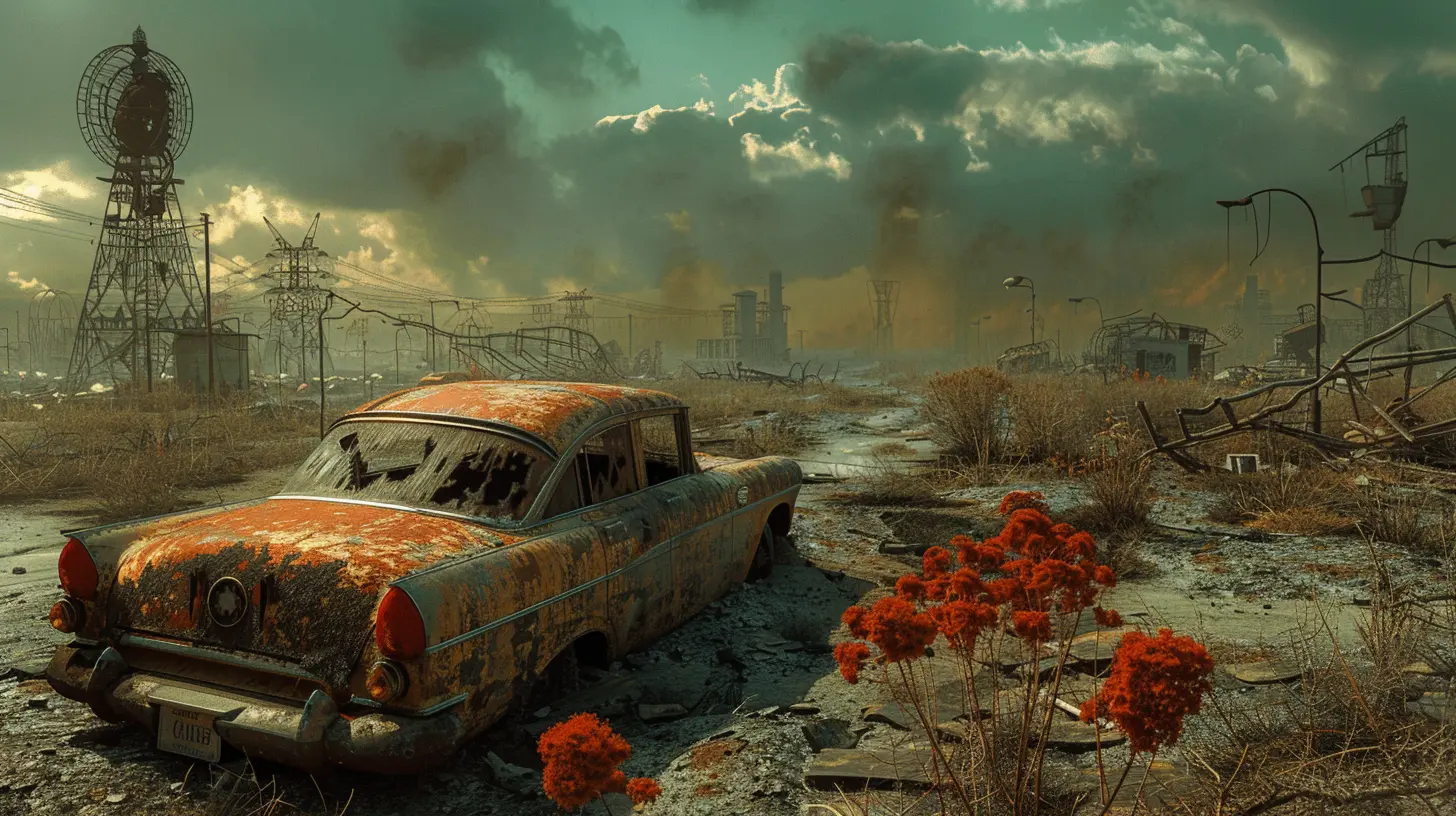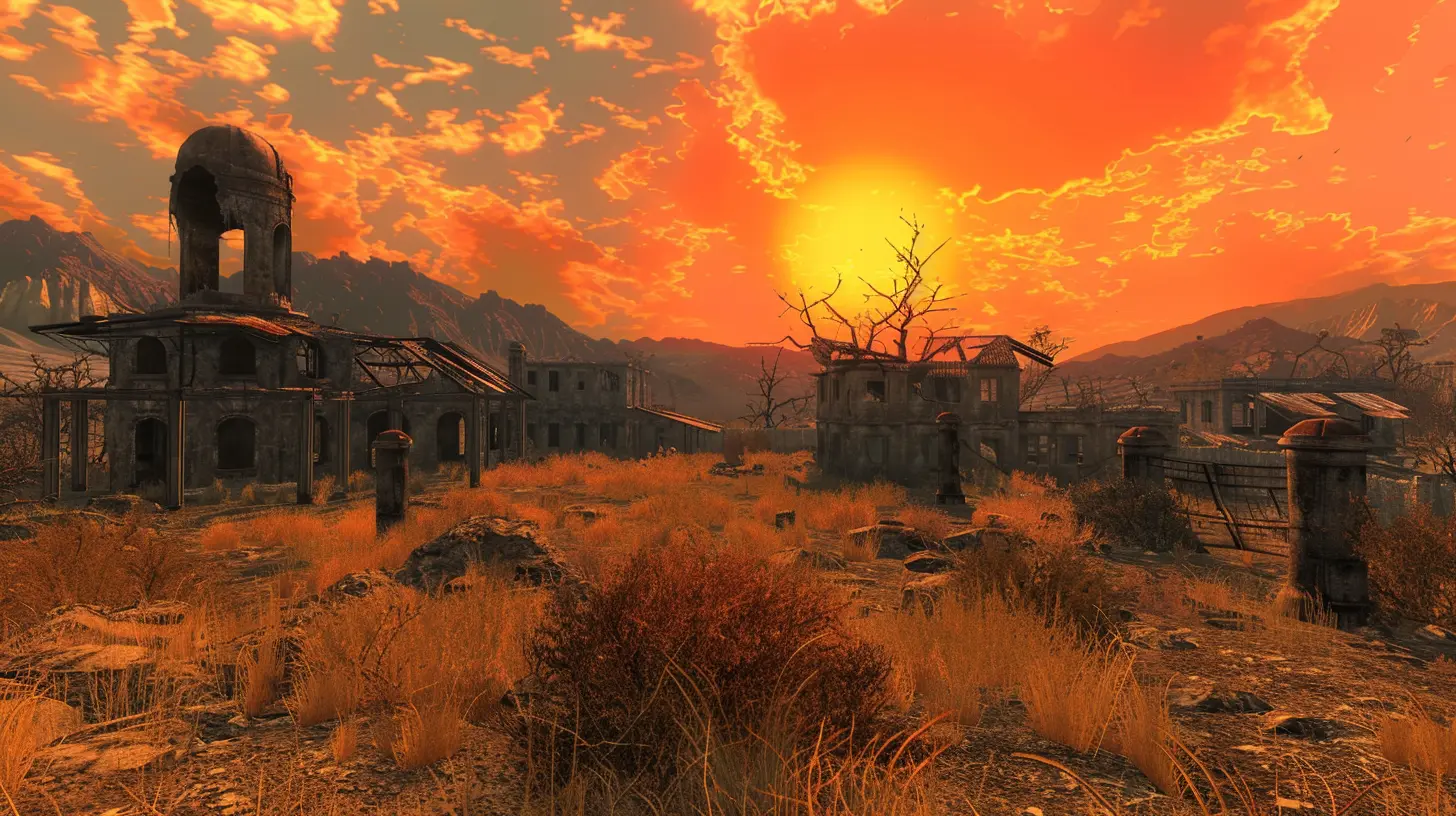Life After the Apocalypse: Surviving in Post-Apocalyptic Sim Games
25 July 2025
So, the world’s ended (in-game, of course), and somehow, you’re still alive. Maybe it was a nuclear war, an alien invasion, or some virus that turned half the population into hungry mutants. Doesn’t really matter how it went down—the point is, you’re here, and now it’s time to figure out how to survive in this wrecked, wild wasteland.
If you’ve ever played a post-apocalyptic sim game, you know it’s not just about dodging zombies or managing food. It’s about rebuilding, managing resources, making tough decisions, and yep—sometimes eating questionable food to stay alive. Let’s dive into what makes these games so addictive, relatable, and surprisingly full of life lessons.

Why We’re Obsessed with Post-Apocalyptic Sim Games
Let’s be real—life’s unpredictable, and post-apocalyptic games throw that uncertainty into overdrive. But there’s something deeply satisfying about taking chaos and turning it into order. You start with nothing but rubble and end up with a full-blown community. That sense of progress? Super rewarding.Plus, they let us play out our “what if?” daydreams without actually having to give up running water. It’s exciting, it’s intense, and hey, you get to be the hero of your own gritty survival story.

Resource Management: The Real MVP
If there’s one skill these games hammer into your brain, it’s managing resources like a boss. Water, food, electricity, medicine—you name it. Everything is scarce, and every choice matters. You can’t just throw stuff around like in a regular city-building game.You’ll often have moments like:
- “Do I fix the water purifier or build a lookout tower?”
- “Should I send my only medic on a scavenging run or keep them safe at camp?”
- “Do I use the last of my beans now or save them for an even worse day?”
These dilemmas make the gameplay feel real and keep your brain in high-gear problem-solving mode.

Building a Shelter… One Rusty Nail at a Time
Your base is your safe haven, your little pocket of humanity. And building it from scratch? Kind of like putting IKEA furniture together without instructions or all the parts. You start with maybe a broken-down bus and a couple of beds, and over time, if you play it smart, you end up with a solid compound.The joy here lies in progress. Watching your shelter grow from a barely-standing shack into a fortified community hub is straight-up addicting. It’s survival, but with an architect's twist.

Choices That Punch You in the Gut
Post-apocalyptic sim games don’t shy away from emotional choices. They’ll make you ask yourself: “What would I do, really, if everything collapsed?”Would you rob someone to save your own group? Would you exile a sick community member to stop an infection? These aren’t just black-and-white decisions—they’re grey, messy, and heart-wrenching.
The emotional weight gives these games depth. You’re not just surviving—you’re making ethical calls that shape the entire story. And sometimes, whatever choice you make, it still hurts.
Time Management is Survival Management
Unlike real life (where procrastination is just mildly annoying), in these games, wasting time can get people killed. Every hour matters. Do you use it to scavenge, build, or heal?A lot of games use day-night cycles, and the pressure is real. You might say, “Just one more task,” only for night to fall and send mutant dogs your way. It builds tension, but it also teaches you to prioritize and think ahead. Honestly, it’s a time management simulator in disguise.
NPCs: The Good, The Bad, and The Utterly Useless
Interacting with non-playable characters can be a rollercoaster. Some are helpful, others are a pain, and a few will straight-up betray you. But you need them. You can’t rebuild society alone.Managing personalities, building trust, assigning roles—it’s like being the world's most stressed-out HR manager. But hey, when you finally get that grumpy mechanic and shy scientist to work together, it’s a moment of pure joy.
Let’s Talk About the Best Post-Apocalyptic Sim Games (Because You Know You Want to Play One Now)
There’s no shortage of titles that throw you into end-of-the-world chaos, but some stand out more than others. Here are a few that really nail the survival-sim vibe:1. Frostpunk
The world’s frozen over and you’re managing the last city on Earth. No pressure, right? This game mixes survival with brutal moral decisions. Sometimes you’ll have to choose between child labor and freezing to death. It’s dark, but also incredibly compelling.2. This War of Mine
Instead of playing a soldier, you’re just a group of civilians trying to live through a war. The game focuses on emotional storytelling, and the scarcity feels really raw. It’s not fun in the traditional sense—but it’s unforgettable.3. Surviving the Aftermath
Classic post-apocalyptic sim. You build a colony, manage its needs, deal with disasters, and try to piece the world back together. It’s got great depth, and it scratches that crafting-and-strategy itch just right.4. Endzone: A World Apart
Imagine building a thriving city after nuclear fallout. That’s Endzone. With environmental hazards, radiation zones, and resource balancing, it’s like SimCity met Fallout and had a highly strategic baby.5. Project Zomboid
More personal, more grounded. You play as a single survivor in a zombie apocalypse, trying to live as long as possible. You’ll learn skills, build safehouses, and try not to die horribly. Spoiler: You probably will.
What Post-Apocalyptic Games Teach Us (That We Didn’t Expect)
These games aren’t just about survival—they’re secretly life coaches in disguise. Hear me out:- They teach resilience. You’ll fail, a lot, and still keep trying.
- They boost your planning skills. Seriously, after managing food rations for 30 survivors, grocery shopping feels like child’s play.
- They remind us of what really matters. Community, safety, empathy—it’s all there.
And weirdly enough, they can be kind of comforting? Like, if things ever did go sideways, at least you’ve had a hundred dry runs in-game. That’s gotta count for something.
Tips to Thrive in the Wasteland (AKA Don’t Die Immediately)
If you’re new to the genre or just need a refresher, here are a few golden rules:- Don’t hoard—stockpile smart. Resources go bad or get stolen. Use them wisely.
- Scout before you build. Know the lay of the land. That perfect water spot might be right next to a mutant nest.
- Keep morale high. Depressed survivors are ineffective survivors. Build entertainment, give them breaks—it matters.
- Upgrade security. Always. You never know when raiders (or worse) will show up.
- Accept failure. You will mess up. The game is designed that way. The fun is in figuring it out anyway.
The Allure of Civilization After Collapse
Why do we love these bleak games so much? Maybe it’s the control we feel when everything else is chaos. Maybe it’s the hope—the idea that no matter how bad it gets, something new can grow from it. Or maybe, deep down, we just like being in charge of our own little post-apocalyptic kingdom.Whatever the case, these games give us space to be resourceful, tough, and even compassionate in the harshest conditions. And isn't that kind of beautiful?
Final Thoughts
Post-apocalyptic sim games aren’t just another niche in the gaming world—they’re a full-blown experience. They test your brain, tug on your emotions, and reward your ability to keep going when everything falls apart.So next time you boot one up, remember: you’re not just playing a game. You’re stepping into a cracked, broken world—and you’re going to make it better, one uncomfortable decision at a time.
Now grab that rusty shovel, patch up those walls, and get ready to scavenge some questionable canned beans. Humanity's counting on you.
all images in this post were generated using AI tools
Category:
Simulation GamesAuthor:

Pascal Jennings
Discussion
rate this article
1 comments
Kova Fields
Great article! I love how post-apocalyptic sim games blend survival strategies with storytelling. It’s fascinating to see how different games tackle the challenges of rebuilding life after chaos!
August 1, 2025 at 3:49 AM

Pascal Jennings
Thank you! I'm glad you enjoyed the article and appreciate the unique blend of survival and storytelling in these games!

